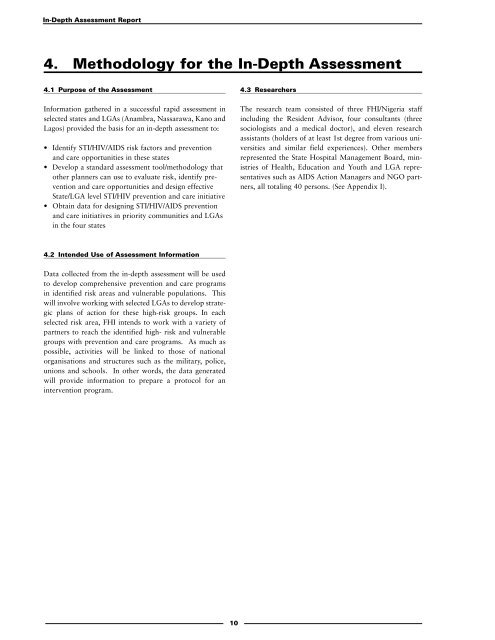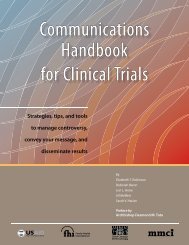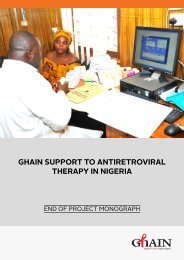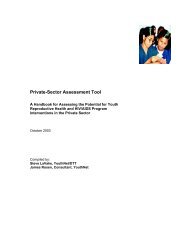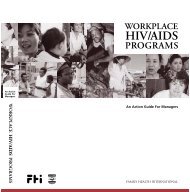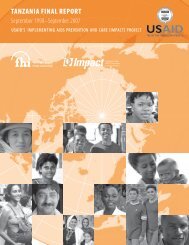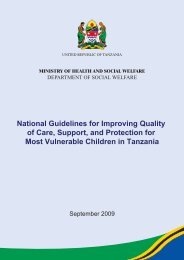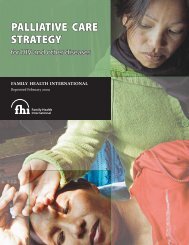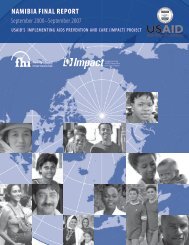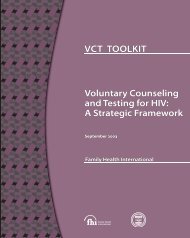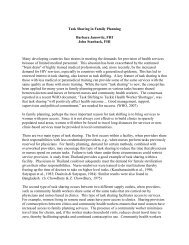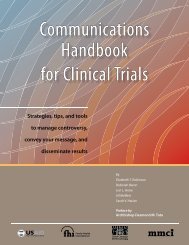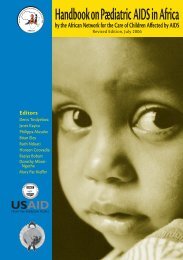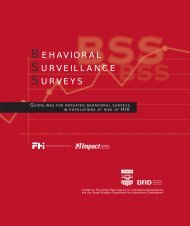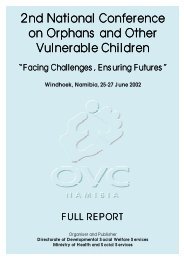Lagos State, Nigeria - Family Health International
Lagos State, Nigeria - Family Health International
Lagos State, Nigeria - Family Health International
Create successful ePaper yourself
Turn your PDF publications into a flip-book with our unique Google optimized e-Paper software.
In-Depth Assessment Report<br />
4. Methodology for the In-Depth Assessment<br />
4.1 Purpose of the Assessment<br />
Information gathered in a successful rapid assessment in<br />
selected states and LGAs (Anambra, Nassarawa, Kano and<br />
<strong>Lagos</strong>) provided the basis for an in-depth assessment to:<br />
• Identify STI/HIV/AIDS risk factors and prevention<br />
and care opportunities in these states<br />
• Develop a standard assessment tool/methodology that<br />
other planners can use to evaluate risk, identify prevention<br />
and care opportunities and design effective<br />
<strong>State</strong>/LGA level STI/HIV prevention and care initiative<br />
• Obtain data for designing STI/HIV/AIDS prevention<br />
and care initiatives in priority communities and LGAs<br />
in the four states<br />
4.2 Intended Use of Assessment Information<br />
Data collected from the in-depth assessment will be used<br />
to develop comprehensive prevention and care programs<br />
in identified risk areas and vulnerable populations. This<br />
will involve working with selected LGAs to develop strategic<br />
plans of action for these high-risk groups. In each<br />
selected risk area, FHI intends to work with a variety of<br />
partners to reach the identified high- risk and vulnerable<br />
groups with prevention and care programs. As much as<br />
possible, activities will be linked to those of national<br />
organisations and structures such as the military, police,<br />
unions and schools. In other words, the data generated<br />
will provide information to prepare a protocol for an<br />
intervention program.<br />
10<br />
4.3 Researchers<br />
The research team consisted of three FHI/<strong>Nigeria</strong> staff<br />
including the Resident Advisor, four consultants (three<br />
sociologists and a medical doctor), and eleven research<br />
assistants (holders of at least 1st degree from various universities<br />
and similar field experiences). Other members<br />
represented the <strong>State</strong> Hospital Management Board, ministries<br />
of <strong>Health</strong>, Education and Youth and LGA representatives<br />
such as AIDS Action Managers and NGO partners,<br />
all totaling 40 persons. (See Appendix I).


